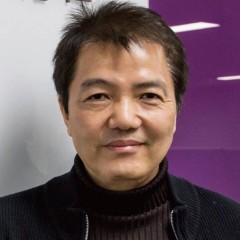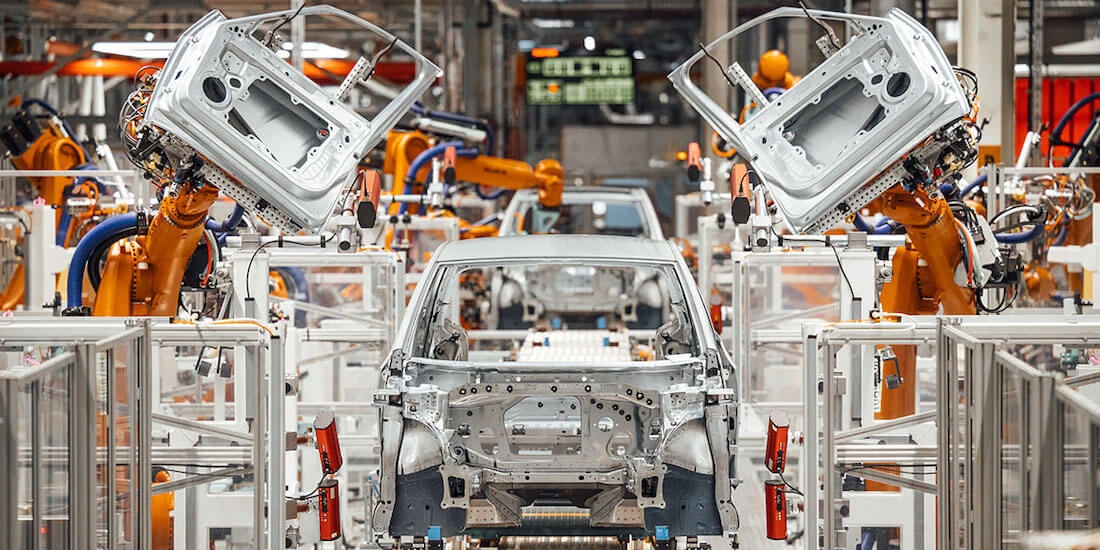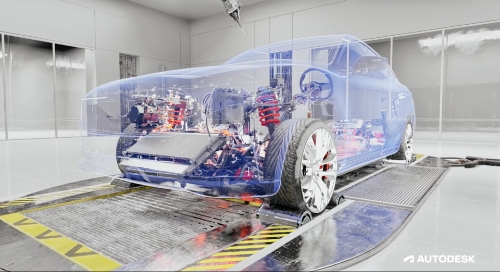In Japan, smart factory education is supporting the future of work
Kogakuin University in Japan has developed programs geared toward the smart factories of the future—educating students for the future of work with skills and hands-on experience.

Yasuo Matsunaka
November 11, 2024 • 7 min read
Manufacturing’s next frontier is creating smart factories that digitize processes at all levels, using technology like AI, the Industrial Internet of Things, and the cloud.
To combat growing labor shortages, manufacturing needs a workforce that understands the changing technologies and equipment.
University programs have stepped in to fill this gap, offering programs and other opportunities that give students the education and hands-on experience they’ll need for future jobs.
Since Industry 4.0 was defined in 2011, technologies that support it such as cloud computing, AI, and digital twins have been rapidly developing. Now, the push is toward realizing smart manufacturing, which digitizes manufacturing at all levels, from product design to supply chain, production, distribution, and sales. Smart factories will transform the manufacturing industry—and the future of manufacturing work.
The core concept of the smart factory is to streamline the design and production of manufacturing through digital technologies such as IIoT, AI, and the cloud—and it’s already clear from research like the Smart Factory Study by Deloitte and MAPI that this will benefit all manufacturing companies. However, in addition to digital technology, smart factories rely on workers educated with the skills to respond to the changing future of work, and trained in using equipment and systems that best utilize collected data.
“While Japanese companies are moving their factories to emerging countries due to cost considerations, they are also being significantly affected by political factors, such as the fact that they cannot export machining centers and high-performance digital machine tools from Japan to emerging countries due to global circumstances,” says Professor Hiroto Hamane, director of the Manufacturing Support Center at Kogakuin University.
“Tools for manufacturing from Germany and other European countries are increasing their market share, and companies in other countries are taking measures such as increasing production rates through automated production and making use of Internet technology,” Hamane says. “But Japan is still tending to follow traditional manufacturing methods and is falling far behind in terms of productivity improvement.”
Kogakuin University established the Manufacturing Support Center in 2015 to provide education in processing technology and safety, as well as develop engineering education programs and support creative activities. However, Hamane says acquiring knowledge of design and processing alone is not enough to respond to the anticipated Industry 5.0. There is a critical shortage of workers who can respond to this situation with the skillsets needed to operate future global smart factories.
“In the future, it will inevitably happen that Japanese students will find employment at global companies outside of Japan, so we also need to train people who can respond to this,” continues Hamane. “For this reason, I thought that it was necessary to update and reform the content of education. In recent years, Germany, China, and the United States have been leading the way in the development of smart factories for technologies that enable the rapid production of semiconductors and smartphones.”
Hamane says that in Japan, there is not enough training for leaders, which is essential for raising competitiveness. In response, the university developed an educational program that would become a base for training leaders to support the fifth industrial revolution, with the aim of realizing smart factories.
Developing leaders through smart factory education
In 2024, Kogakuin University launched the smart factory education program for second-year undergraduates, bringing together CAD/CAM cloud-based management, simulations, processing, and precision inspection. By training on the management and operation of these processes via the Internet, students can learn management methods suited to actual manufacturing sites, such as team-based production processes and production management.
For this purpose, a 5-axis machining center was installed in the facilities on the Hachioji Campus, which can be used as a virtual factory with remote operation and monitoring possible via a network from the Shinjuku Campus.
The smart factory education program offers intensive classes for small groups, covering the history and basics of smart factories and machining centers, the basics of conventional NC/CNC programming and practical training, and even exercises in indexing and simultaneous processing using 3-axis and 5-axis CAM. From the beginning, all 160 students in each student cohort have been learning to use Autodesk Fusion, an integrated software solution for design and manufacturing functions. Full-scale CNC turning classes are also scheduled to begin in 2025.
Universities that are using machining centers and CNC turning machines compatible with IIoT on such a large scale are extremely rare worldwide, and they are attracting a great deal of attention. This educational program has been certified by Japan’s Ministry of Education, Culture, Sports, Science and Technology as part of its 2023 Educational Equipment Improvement Project and is a pioneering initiative in the realization of a smart factory. At the recent AU 2024 Design & Make Conference by Autodesk, Professor Hamane’s initiatives received global recognition when he was awarded the Education Excellence Award at Autodesk Design & Make Awards.
“In the past, the perception of a mechanical engineering department was of lathes, milling machines and drafting done by hand, but these things have disappeared from the manufacturing floor, especially in large company factories, and manufacturing using CAM and machining centers is now the norm,” Hamane says. “From now on, there is a growing consensus among companies that education should be provided to train people who can establish and manage such factories, as well as people who can communicate and manage projects in global companies. There has been an increase in the number of people from companies and other universities who come to visit and learn about our program and facilities.”

Strengthening the educational effect of student projects
At Kogakuin University, student projects are actively carried out as independent manufacturing activities, such as the student formula and solar car projects. Students in the Department of Mechanical Engineering and the Department of Mechanical Systems Engineering apply the knowledge and skills they’ve learned—like machine design and production, 3D CAD, and control engineering—to these projects. The solar car team, of which Professor Hamane is an advisor, participates in various races, including the Bridgestone World Solar Challenge (BWSC) held in Australia.
“I think what is important in the education of students is to respect their individuality. By the time they become university students, their personalities and individuality have already solidified and cannot be changed,” says Hamane. “When building a team, you can’t get anywhere by doing things that each person individually dislikes. You can’t become the best in the world just by liking something, but it’s important to quickly find something that you can be original with, something that you feel comfortable with and enjoy, and that will also lead to an understanding and realization.”
Hamane says these kinds of activities also lead to industry-academia collaboration. “For example, when we ask for solar panels, the students go to the company to talk to them, or we ask overseas companies to supply parts via Zoom, and we also help with study sessions run by companies. We also often get requests from venture companies to test unique parts, paints, etc.”
“Today’s students are of a generation that has access to a lot of information, and they are good at sorting through what they find and absorbing it quickly,” he says. “At first, they tend to be overly confident in their own abilities and get stuck in their ways. And people say that Japanese students are quiet compared to their overseas counterparts. But through student projects and other activities, they make friends with people from all over the world and participate in team activities, which helps them to grow a lot mentally.”
In some cases, students who gain skills and experience through these projects are offered employment at the company of their choice. Regardless of where they are employed, students who have acquired these new skills and techniques can go on to work in manufacturing without being constrained by preexisting approaches. And in this way, education will lead to a better future of work in manufacturing.
Are you an educator? Get free access to Autodesk software with the Autodesk Education Plan.

About the author

Yasuo Matsunaka
Yasuo Matsunaka is a keyboard player, space-movie devotee, editor of Design & Make with Autodesk Japan, and international content manager for APAC and Japan at Autodesk.

